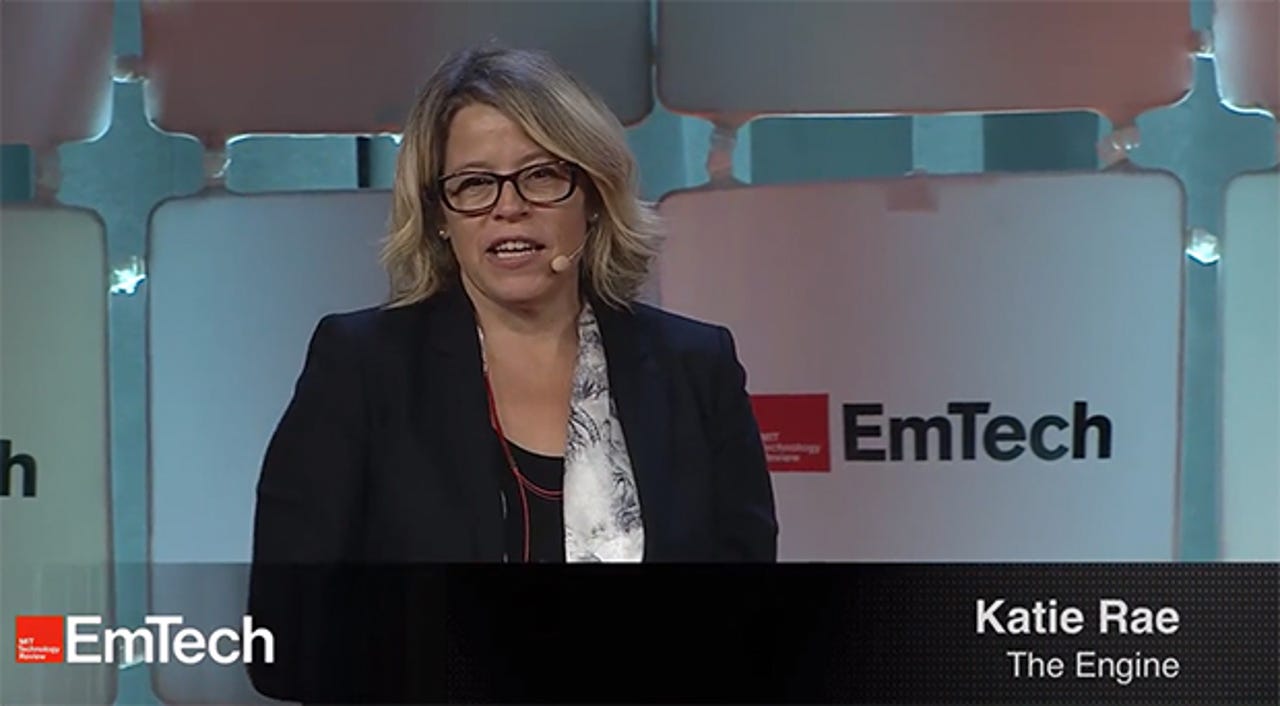EmTech MIT: Tackling "tough tech"


Graduate students at universities like MIT are doing groundbreaking work, but it often fails to make it out of the lab. Instead the best and brightest are snapped up by start-ups and tech giants hungry for AI talent.
"Why are our best PhD students in really-important labs starting dating apps?" asked Katie Rae, the CEO and managing partner at The Engine, a start-up accelerator. "That is just almost a tragedy and you see it all the time."
Investors are wary of funding projects that take lots of capital and require years to develop. Instead, most capital flows to what Rae calls business model innovations--things that make life more convenient but aren't likely to change the world. As a result, much of the work at MIT and other universities in so-called "tough tech" never sees the light of day.
Created at and partly funded by MIT, The Engine is what Rae calls a "market intervention" to ensure that some of these moonshots get the funding and other support needed to reach escape velocity. It invests in areas such as advanced materials and manufacturing, biotech, energy, the Internet of Things, quantum computing and software, though often ideas straddle several of these areas. The fund looks for ideas backed by founders that can see it through to the finish line--even it takes a decade or more--but with realistic milestones along the way.
One example is Commonwealth Fusion Systems, a private company also backed by Italian energy giant Eni and other investors that aims to accelerate commercialization of fusion energy. That definitely qualifies as tough tech, but Rae claims much of the basic science and physics has already been worked out, and it is an engineering and supply-chain problem now.
"It is a really ambitious project, but it has applications beyond fusion and it has clear incremental milestones," she said. "So it looks like a big moonshot, but if you break it down it starts to look very reasonable."
While most investors are worried about quarterly earnings, The Engine's first fund was over-subscribed so there are clearly some investors looking for these kinds of opportunities. "Institutions and mega family offices are looking around the world and noting there are huge problems that need to be solved," Rae said. "You start to look at these things and say to yourself, 'wow, I see a lot of short-term thinking.'" Ultimately, she said, it will require a combination of corporate, venture and government support to turn this tough tech into a reality.